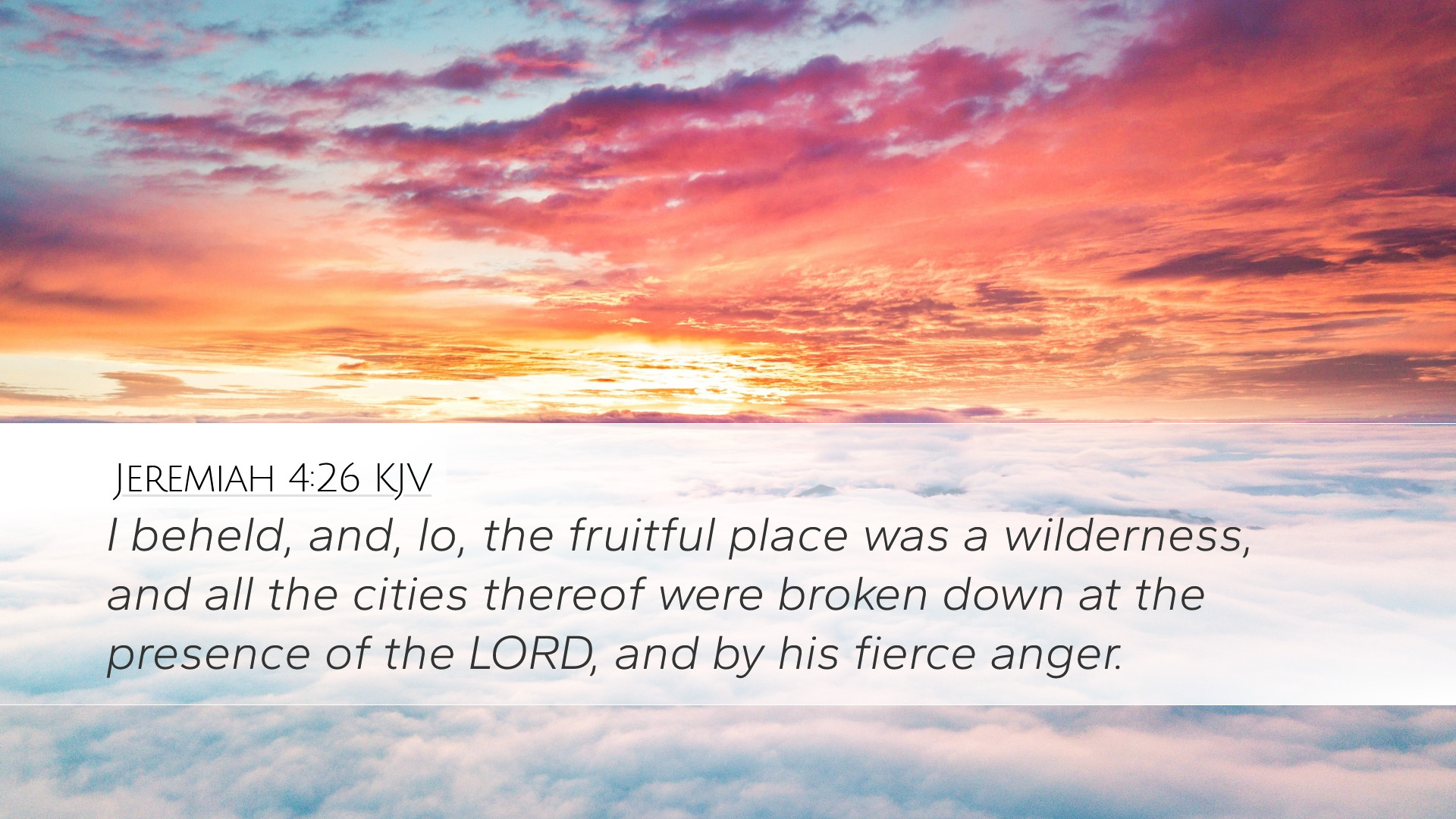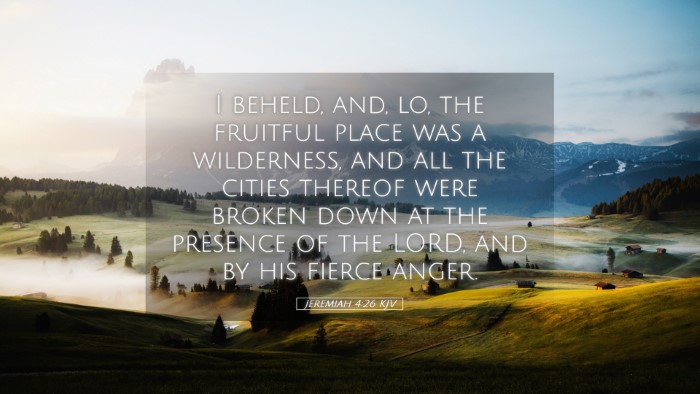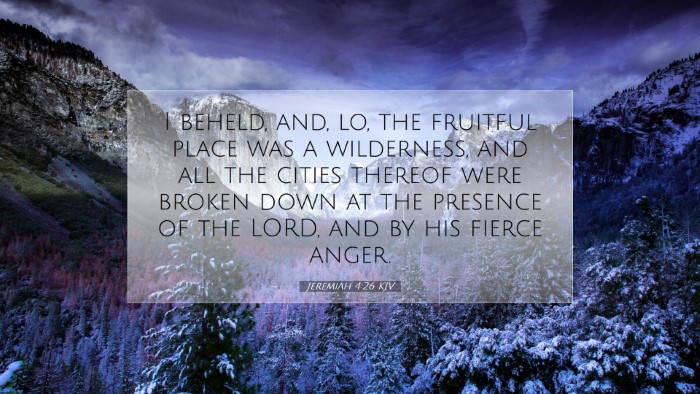Commentary on Jeremiah 4:26
Jeremiah 4:26 states, "I beheld, and, lo, the fruitful place was a wilderness, and all the cities thereof were broken down at the presence of the LORD, and by his fierce anger." This verse encapsulates the profound and poignant themes present throughout the Book of Jeremiah, revealing a manifestation of God's judgment and the resulting desolation. Insights from various public domain commentaries provide a richer understanding of this text.
Contextual Background
The prophet Jeremiah, often referred to as the "weeping prophet," was called to deliver messages of judgment and hope to Israel during a tumultuous period. The historical backdrop includes the impending Babylonian exile, where Jerusalem and its inhabitants faced the consequences of idolatry and disobedience.
Observations from Matthew Henry
Matthew Henry, a well-known biblical commentator, emphasizes the stark contrast between the past and the present. In his commentary on this verse, he notes that the land of Judah, which was once flourishing and blessed, had now become barren and desolate. This transformation serves as a warning against turning away from God. According to Henry, the fruitful place symbolizes not just the physical land but also the spiritual state of the people, indicating that their abandonment of God led to spiritual and physical decay.
-
Theological Implications: Henry interprets this desolation as a direct result of divine judgment, aligning with the broader themes of retribution and grace found in the Old Testament prophets.
-
Reality of Judgment: He stresses the severity of God’s anger towards sin, illustrating that no sin goes unnoticed and unpunished. The imagery of the cities being broken down reflects the total devastation and loss of societal order.
Insights from Albert Barnes
Albert Barnes, another esteemed commentator, brings attention to the prophetic nature of Jeremiah's lament. He reflects on the visual imagery presented - once vibrant cities reduced to ruins due to God’s fierce anger. Barnes elucidates that the phrase "at the presence of the LORD" indicates that God's presence can be both a source of comfort and a harbinger of judgment.
-
Contrasts of Divine Presence: Barnes points out that in times of righteousness, God's presence is a blessing, but in times of sin, it brings forth judgment. This duality is central to understanding the consequences of Israel's actions.
-
Call to Repentance: The desolate imagery serves as a call to repentance for those who remain. Barnes emphasizes the mercifulness of God, still offering opportunities for reconnection and restoration, if one turns back to Him.
Reflections by Adam Clarke
Adam Clarke provides a nuanced interpretation of Jeremiah 4:26, noting the emotional weight of the prophet's vision. Clarke describes how the desolation evokes a sense of grief, not only for the physical state of the land but for the spiritual degeneration of the people. He elaborates on the metaphor of a wilderness, linking it with themes of chaos and abandonment.
-
Symbolic Interpretation: Clarke argues that the "fruitful place" represents God’s intended order and beauty within creation, which has been marred by human disobedience. The wildness of the wilderness is more than a physical description; it reflects the spiritual barrenness of a people estranged from their God.
-
Hope Amidst Judgment: While Clarke acknowledges the fierce anger of God displayed in this verse, he also highlights that God's ultimate desire is reconciliation. This destruction is not the final word, as God still holds out hope for restoration and redemption.
The Overall Message
The collaborative insights from Henry, Barnes, and Clarke converge on the theme of God's judgment while simultaneously calling for repentance. The desolation depicted in Jeremiah 4:26 serves as both a warning and an invitation.
-
Reflection for Today: For modern readers, this verse invites deep reflection on the state of personal and communal spirituality. It challenges one to consider how disobedience and neglect of God's ways can lead to spiritual desolation.
-
Hope and Restoration: Despite the stark realities of judgment, it is pivotal to remember that God's desire is for restoration. The warnings issued through Jeremiah are not without a pathway for forgiveness and renewal.
Concluding Thoughts
In conclusion, Jeremiah 4:26 stands as a powerful testament to the consequences of turning away from God. The insights from Matthew Henry, Albert Barnes, and Adam Clarke collectively underscore the themes of judgment, desolation, and the hope of restoration.
For pastors, students, theologians, and Bible scholars, this verse serves as a reminder of the gravity of sin and the ever-present opportunity for redemption through returning to the Lord.


